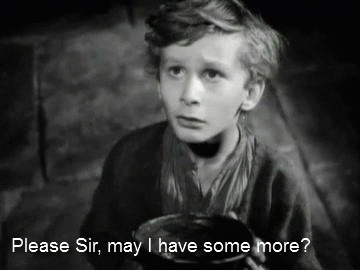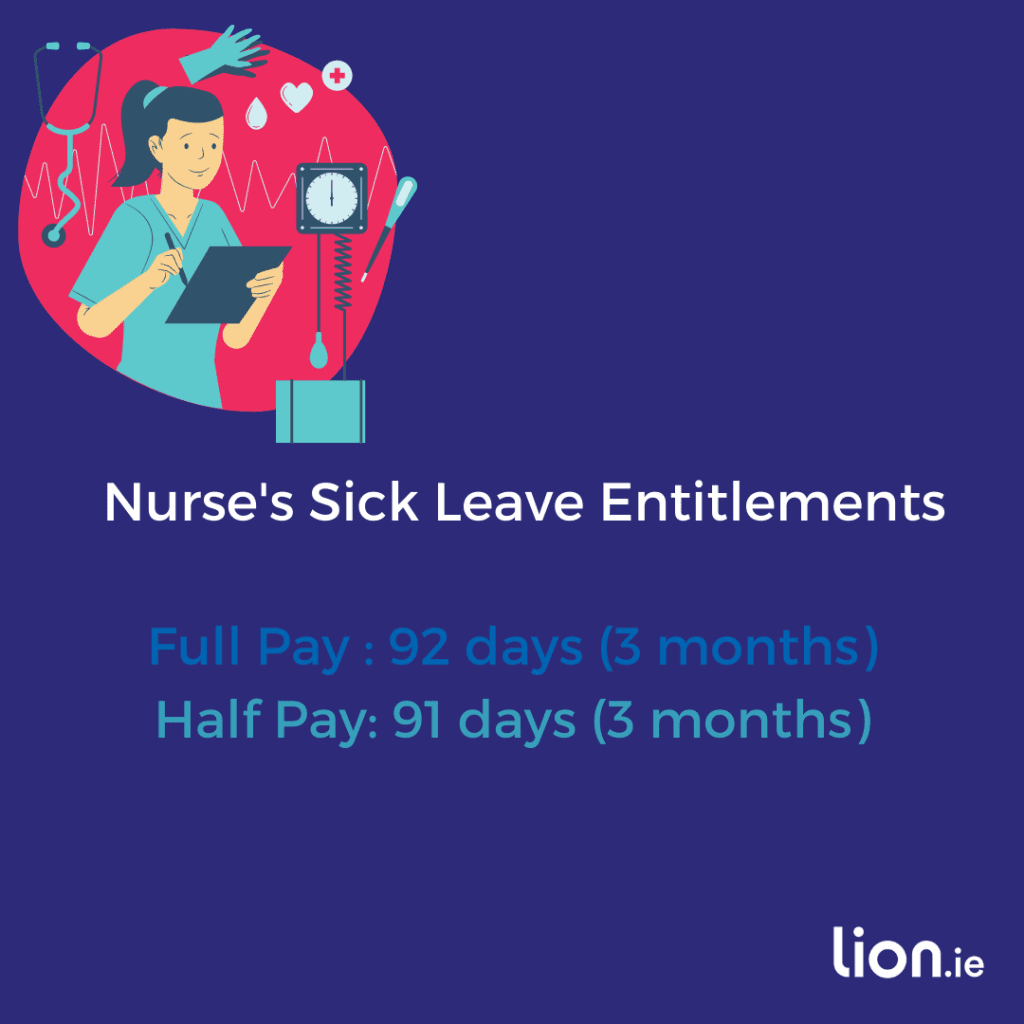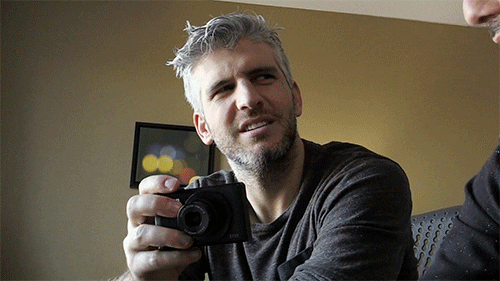Income Protection for Nurses

Oh our brilliant nurses, without you wonderful bunch I don’t know where half of us would be.
Dead probably.
Since you are the backbone of the medical world it’s surprising how tight our government is when it comes to paying you what you’re worth – but we won’t delve into that too deeply right now because if I start I don’t reckon I’ll be able to stop myself.
I can’t pay you more or swindle you a rock-star salary deal but what I can do is make sure you get paid if you get sick.
Sounds good?
Since you spend your life caring for the sick, I’m sure you forget all about yourselves.
What do you do if you get sick?
Who looks after you?
And what happens if you have to leave your career for a significant amount of time because of illness or injury?
It’s a fecking scary thought.
Especially if you have no backup plan.
I’m sure you’d like some sort of safety net should you be the one who ends up in a hospital bed.
As of right now not a single bloody one of us is entitled to even one lowly day of paid sick leave.
Yup, that’s right. Not one. Although, there are some sound employers out there who say ‘fuck that!’ And give their employees paid sick leave. Round of applause for those decent men and women.
However, come September 2022 the government are making it a legal requirement for everyone to receive 3 statutory paid sick days with a possible increase to 5 days in 2024, and 10 in 2026.

I mean, where do they even pull these numbers from?
Let’s be honest if you get hit with a nasty bout of the flu or the ‘rona you’re going to be down and out for more than 3 days.
A long-term illness or a nasty accident will take you out of the workforce for many months, years or forever.
But, I digress, back to our wonderful nurses.
How Much Sick Pay Do Nurses Get?
If you work for the HSE, your standard sick pay is 3 months of full pay and three months of half pay.

If you’re out for longer than 6 months, you will get illness benefit of just €203 per week.
The average nursing salary in Ireland is €44,401 or €853 per week.
Could you survive on less than a quarter of that?
If you’re a nurse in the private sector, you should check the T&Cs of your employment but don’t be surprised to find you have no sick pay entitlements.
Why Do Nurses Need Income Protection?
You spend most of your days, nights, Christmas’, New Year’s and god knows what else running yourself ragged.
Before too long, your mental health takes a dive or your back pain curls you up in a sweaty ball on the floor and you just can’t continue working as a nurse.
This is where income protection insurance comes to the rescue.
Like a shiny white knight on a blinding white mare, salary protection helps pay those thousands of bills you have to keep up with.
Because those people with their hands out don’t care what your situation is they just want to get paid.
Mortgage, electric, food, gas, oil, petrol, doctors bills, medication, gluten-free kibble for Princess the Cockapoo (she has a sensitive stomach you see) the list is damn near endless and it won’t go away, even if you find yourself in the position of having to take long term illness-related leave from work.
To keep up with these bills you need to ensure some sort of income continuance right?
An income protection policy is just the thing.
But what on earth is income protection? And how much wonga can you get?
Salary Protection: The Ins and Outs That All Nurses Need To Know
Firstly, you’ve probably noticed how I’m interchangeably using income protection and salary protection. Don’t worry it’s the same thing, just a different name.
Can I let you in on a secret? Google likes me to use lots of different variations of the same term so lovely people like yourself can actually find me when you search.
Hello Google 👋
Hi Nick 🔎
Let’s get into it. What do you really need to know about income protection?
How do you get income protection insurance?
Income protection is easy enough to get your mitts on.
If you want to save some time and get the very best deal, you can use a specialist protection advisor like those legends at lion.ie
They’ve got their finger on the insurance world’s buzz button, they understand every little piece of jargon there is to know, and they’ve got your best interests at heart.
Go check them out.
I mean you could go ahead and do it all yourself but I have a feeling we’d be great pals and you wouldn’t want to miss out on the friendship of a lifetime right?
Riiiiight??
All you need to do is give me some details on this here questionnaire, not dissimilar to the info you use for your Tinder profile.

Your name, your age, your social habits, your medical history. Ok, so that last one you’re unlikely to tell a potential beau but your potential income protection insurance provider wants to know all that.
It’s this medical questionnaire that helps me figure out how much your premiums are going to be and as tempted as you may be I highly advise against telling any porky pies here.
How much cash do you get?
Oooh, this is the fun bit.
Let’s go back to the nurse earning €44,401 – we’ll call her Average Annie.
Hello Annie. 👋
Hi Nick.😊
OK, with the niceties out of the way, let’s see what Annie gets from her income protection policy if she cannot do her job for over six months.
She can guarantee a replacement income (including state illness benefit) of up to 75% of her salary meaning she will get €10,816 from the government and the rest from her income protection provider.
You want cold hard numbers, I hear ya, these ones are just out of the freezer
€44,401 x 75% = €33,000 is the maximum income Annie can get from the state and her income protection.
The State illness benefit is €10,816
Income protection = €33,000 – €10,816 = €22,186
So after six months, Annie will get €22,186 annually from her insurer until she is ready to go back to work.
She will continue to get €22,186 until age 65 if she can’t get back TO NURSING.
In caps because this is UBER important. If Annie was well enough to get back to some job but chose not to, that’s her choice, the insurer will continue to pay her. Clearly, if she is well enough to get back to work as a nurse but decides not to, well then the insurer will stop paying her claim. The providers are fair but they’re insurers, not a charity.
Is there a list of illnesses covered by income protection?
Income protection is a gem because it covers ANY TYPE of illness or accident that stops you doing your job.
This is different from serious illness cover which covers a certain number of illnesses.
Mint, eh?
See how that could help you, my nursing friend.
How Much Is This Salary Protection Policy Going To Cost Me?
Hello Annie 👋
Yeah, Nick, what now?
😬 Jaysus, I better not ask Annie her age so let’s say she’s 38 and a non-smoker:
Quote Type: Income Protection
First Person: Non-Smoker, born on 18/01/1984
Cover Amount: €22,485 per year until age 65.
Occupation Class: Nurse (Hospital) (Class 3)
Deferred Period: 26 weeks
Premium: €79
after tax relief: €47
So Annie will pay €79 per month and claim tax relief annually giving a net cost of €47 per month.
Less than €50 per month to insure €22,485 per year.
That seems more than fair.
What affects the cost of income protection?
The younger you jump on the salary protection bandwagon the cheaper your premium will be.
So, if you’re younger than Annie, your premiums will be lower, if you’re older than Annie, you’ll pay more – but you’ll pay even more next year if you put it off.
If you smoke, quit those bad boys! Because smokers pay extra and die younger, a pretty shit combination.
Lose a few LBs because if you’re overweight you’ll pay more. I’m not body shaming, don’t get me wrong, I love a little extra jiggle, but you wanted all the facts right?
Extending the deferral period is another way of reducing your income protection premiums.
“What the hell are they ” I hear you cry.
In plain English, a deferral is a period from when you can’t work to when the income protection payments kick in.
The longer you hold out, the cheaper your premium will be.
What’s the cheapest income protection in Ireland?
I don’t like the word cheap so let’s look at the best value or most affordable income protection instead.
That would be Wage Protector from Aviva.
What’s the difference between personal income protection and a group scheme?
Price
The SIPTU scheme charges 2.45% (but does include some life insurance too) so Annie would pay 2.45% x €44,401 = €90 compared to €79 through one of our insurers.
You can fix our price, the group scheme price will increase as your income increase.
Change of Jobs
Should you leave nursing you can take your personal policy with you to your new job. So even if you have to leave nursing due to a health issues, that issue will still be converted in your new job.
The minute you leave nursing, the group scheme policy will end
Choice of Providers
The SIPTU scheme is underwritten by New Ireland.
Should you go for a personal policy you can choose from Aviva, Irish Life, New Ireland, Royal London or Zurich Life.
This is especially important if you have a health issue that may be underwritten more favourably at a different insurer so you can avoid exclusion for that condition.
Aviva has retraining and rehabilitation benefits that are unmatched in the market making them our preferred provider of income protection.
Here’s how we compare income protection providers.
Over to you
That was a humdinger of a blog, I hope there’s a lot of useful info there for you.
Income protection is a must-have for everyone, it is the foundation of any solid financial plan.
It’s more important than life insurance, savings, and even your pension because if your income stops, you won’t be able to pay for any of those.
Imagine what it will be like to know you can pay the mortgage no matter what happens to your health in the future.
So if not average Annie and would like to see what your quote will look like, complete this questionnaire.
I’m here, just twiddling our thumbs, waiting for it to arrive in my inbox so I can save you a boatload of time, and money, and give future you the peace of mind you deserve.

Thanks for reading
Nick




